Innovations in Food Loss and Waste Management
Ancona, Italy, 23-25 January 2024
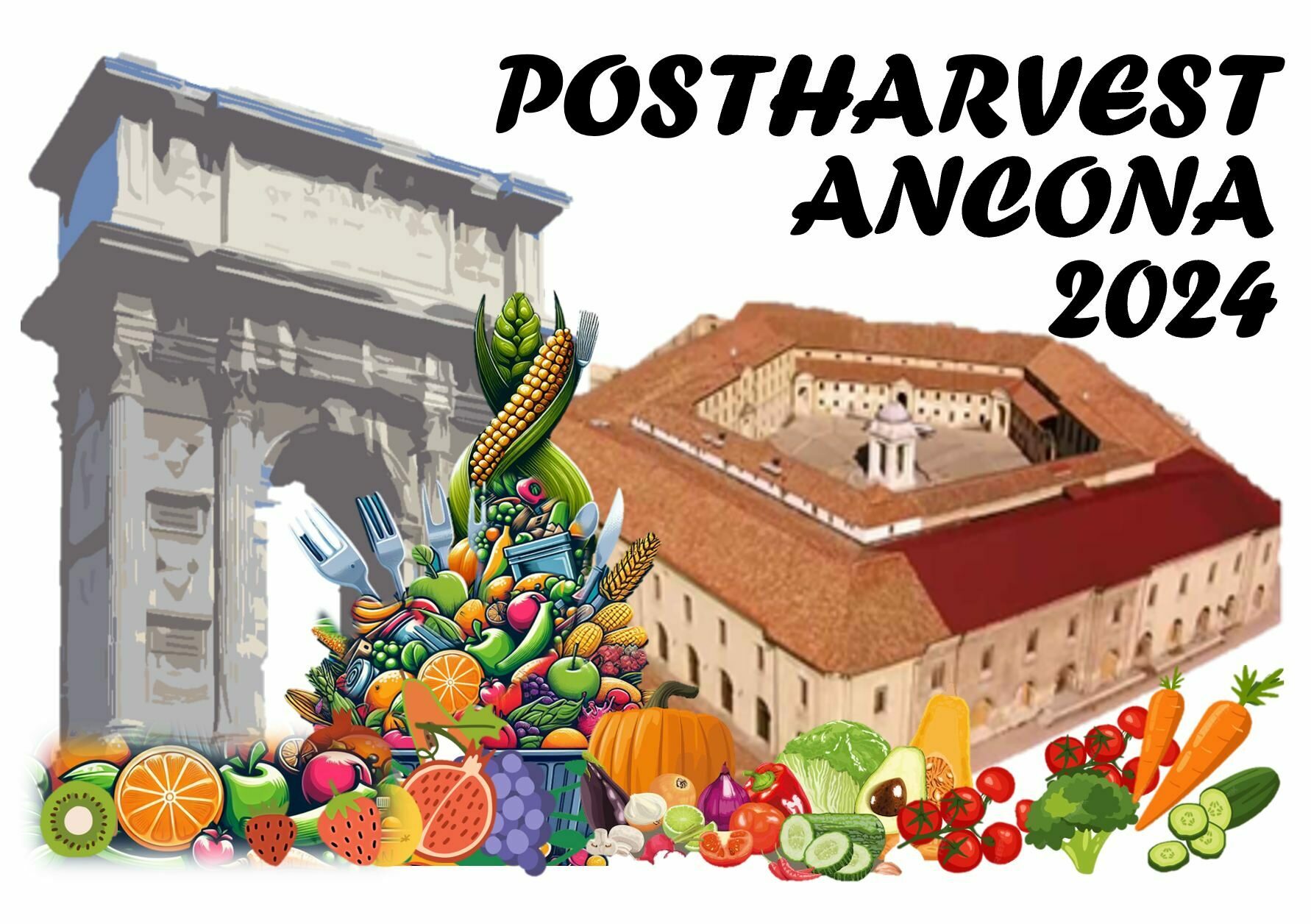
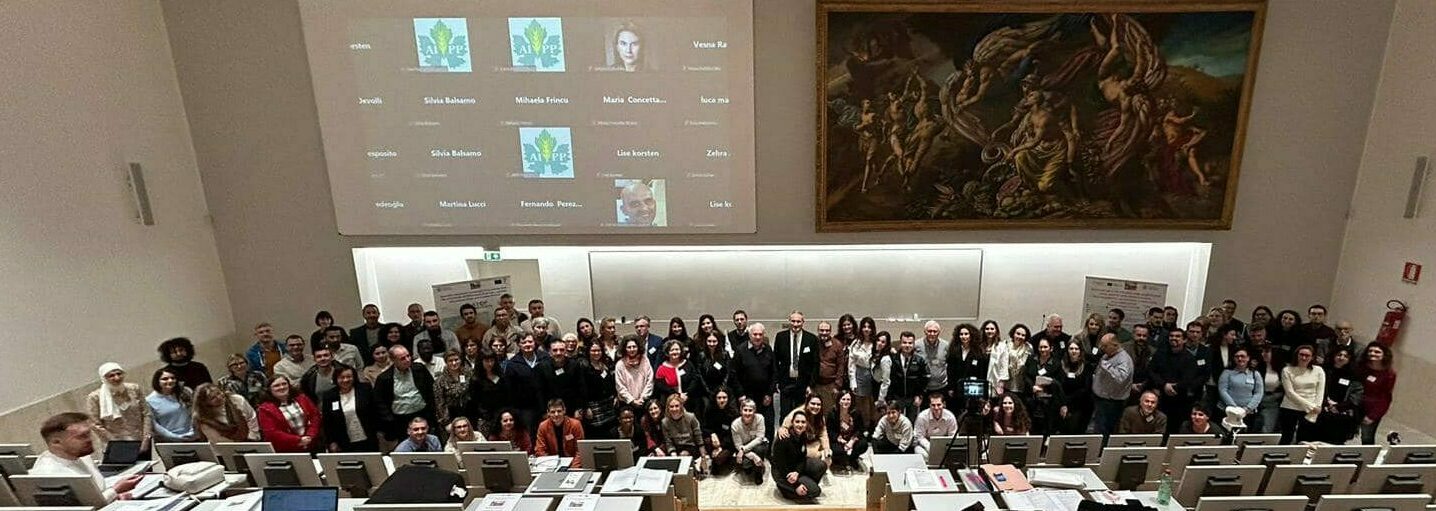
Group picture of participants from over 30 Countries, plus other connected online
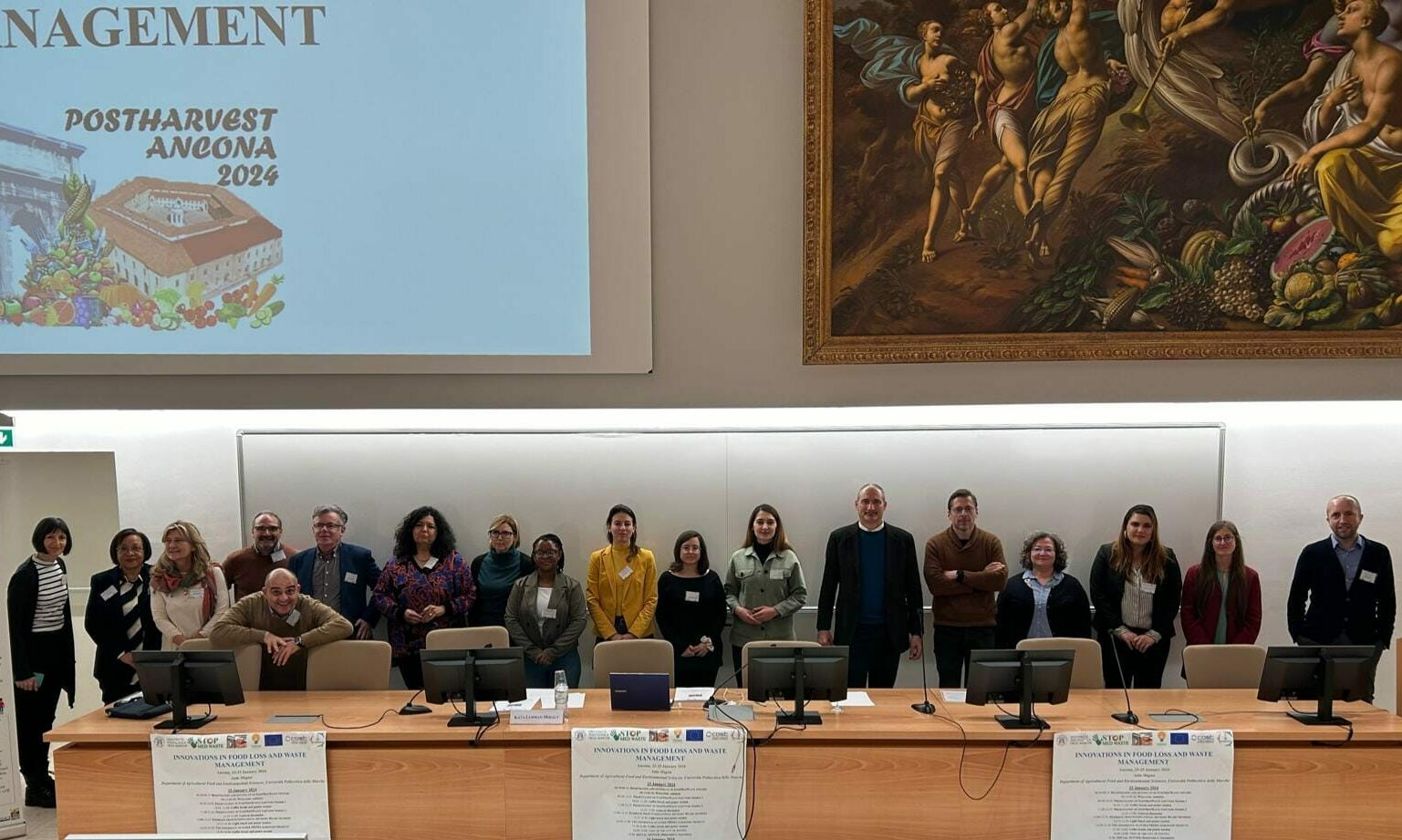
Group picture with the Convener (Gianfranco Romanazzi, Chair of COST FoodWaStop), the Organising Committee (Marwa Moumni; Lucia Landi; Annamaria Lucrezia D’Ortenzio; Simone Piancatelli; Sarah M. Makau; Mehdiye Tunc), the Grant Holder Manager (Chiara Mengarelli), Vice Chair (Fernando Perez-Rodriguez), Grant Award Coordinator (Pervin Kinay), leaders of WG1 (George Karaoglanidis), WG2 (Slaven Zjalic,co-leader Lluis Palou), WG3 (Natalia Falagan, co-leaders Lise Korsten and Rosa Rolle) WG4 (Jessica Girardi), WG5 (Sandro Frati) and WG6 (Kata Mihaly, co-leader Marwa Moumni)
Conference Programme
Program-PostharvestAncona2024-23-25-1-24-5
23 January 2024
https://www.youtube.com/watch?v=lg0QWpKNL20
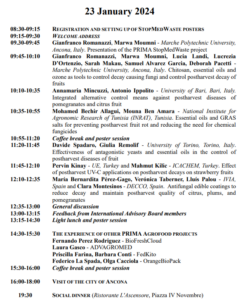
PRESENTATION OF STOPMEDWASTE PRIMA PROJECT
Romanazzi G., Moumni M., PRESENTATION OF PRIMA STOPMEDWASTE PROJECT
Fernando Perez Rodriguez – BIOFRESHCLOUD
Priscilla Farina, Barbara Conti – Fedkito
Federico La Spada, Olga Cacciola – BiOrangePack
24 January 2024
https://www.youtube.com/watch?v=AkD8AGs34B0
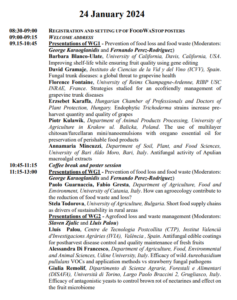
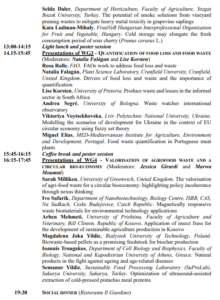
Presentations of WG1 Prevention of food loss and food waste (Moderators: George Karaoglanidis and Fernando Perez Rodriguez)
24 January 2024
Presentations of WG2 Agrofood loss and waste management (Moderators: Slaven Zjalic and Lluís Palou)
24 January 2024
Presentations of WG3 QUANTIFICATION OF FOOD LOSS AND FOOD WASTE (Moderators: Natalia Falágan and Lise Korsten)
25 January 2024
https://www.youtube.com/watch?v=_P341WCN1qw
Presentations of WG4 VALORISATION OF AGROFOOD WASTE AND A CIRCULAR BIO ECONOMY (Moderators: Jessica Girardi and Marwa Moumni)
Presentations of WG5 C ROSS CUTTING STRATEGIES AND SMART SYSTEMS FOR FOOD MANAGEMENT (Moderators: Sandro Frati and Zeynep Zerrin Turgay)
Zeynep Zerrin Turgay, Prevention of food waste in retail industry
Gonzalo Mejia,Sustainable solutions for FL&W related problems case studies in Colombia
Elena Battini Sonmez, Smart Solutions for Waste Prevention with case study on fruit and vegetable
Presentation of WG6 NETWORKING AND DISSEMINATION COMMUNICATION AND TRANSFER OF KNOWLEDGE (Moderators: Kata Ludman Mihály and Luca Falasconi)
Magdalena Bielenia-Grajewska, Communicative side of food loss and waste management
Achraf Ammar, MEDIET4ALL Approach to support food waste prevention
Bekir Ayyildiz, Scientific Studies on Food Waste in Turkey
POSTERS
P06. Effects of commercial natural compounds on postharvest decay of strawberry fruit
P16. Antifungal activity of thirty essential oils to control pathogenic fungi of postharvest decay
BOOK OF ABSTRACTS
Abstract Book Postharvest Ancona 2024
Link for video live
Latest News
StopMedWaste meeting on 21-22 March 2024 Izmir, Turkey
#meeting of #stopmedwaste #primaproject on 21-22 March 2024 Izmir, Turkey. Organised by the Partner of the project Ege University- Turkey. Welcome participation of the coordinator of the Project UNIVPM and[…]
Read moreABOUT US
Project StopMedWaste aims to extend the shelf-life of perishable fresh fruit
vegetables and aromatic plants by applying physical means, natural compounds and biocontrol agents. These treatments will be applied in the laboratory, under semi-commercial conditions and in the packing houses. The effects of these treatments on fruit quality, decay, and development of food-borne pathogens will be monitored during storage, transportation and shelf-life, to define the impact of these treatments on food waste. Moreover, logistic solutions and information and communication technology (ICT) devices with remote control will monitor environmental conditions during storage and transportation. Smart packaging will be developed for visual demonstration of the quality of fresh fruit, vegetables and aromatic plants for the consumer.
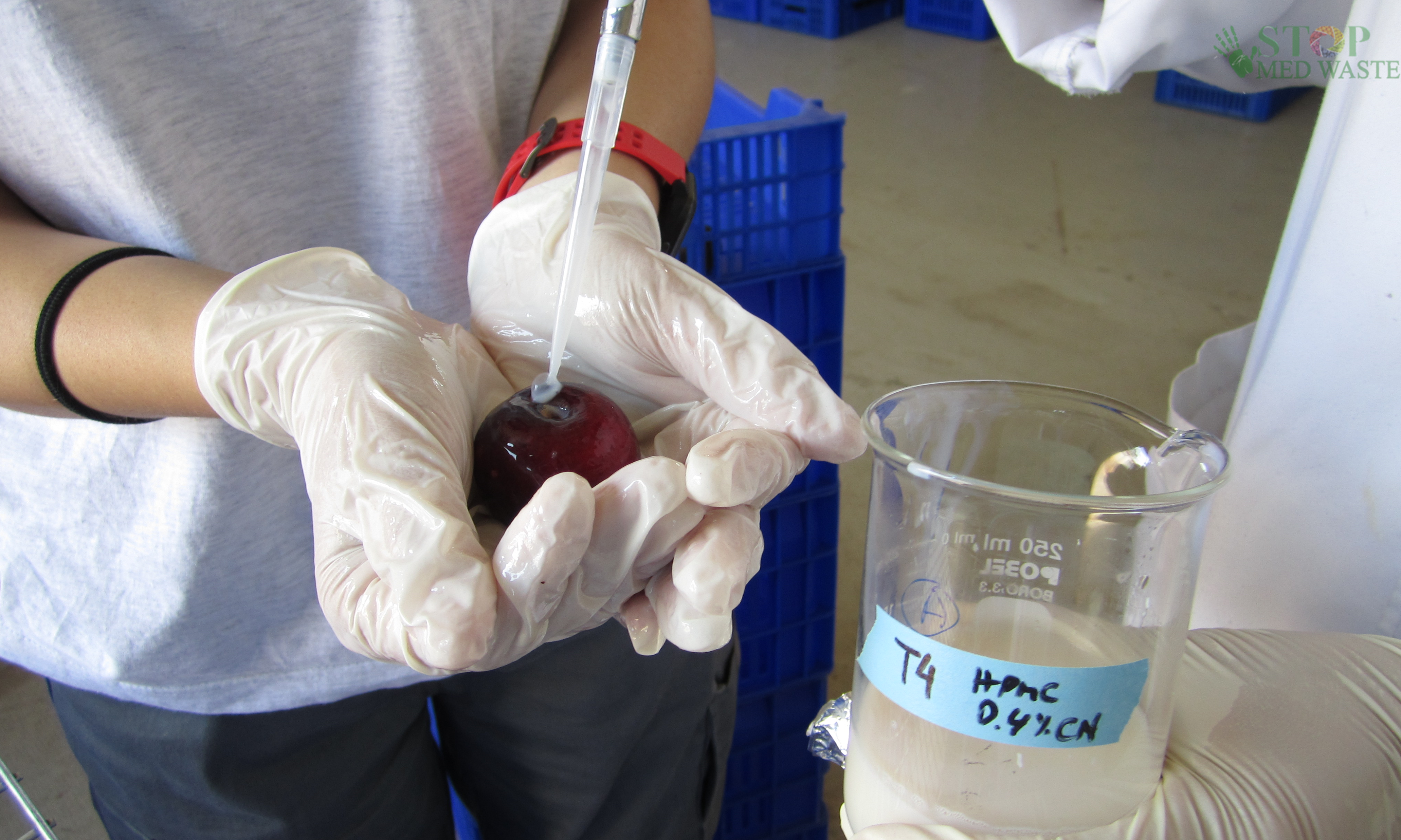

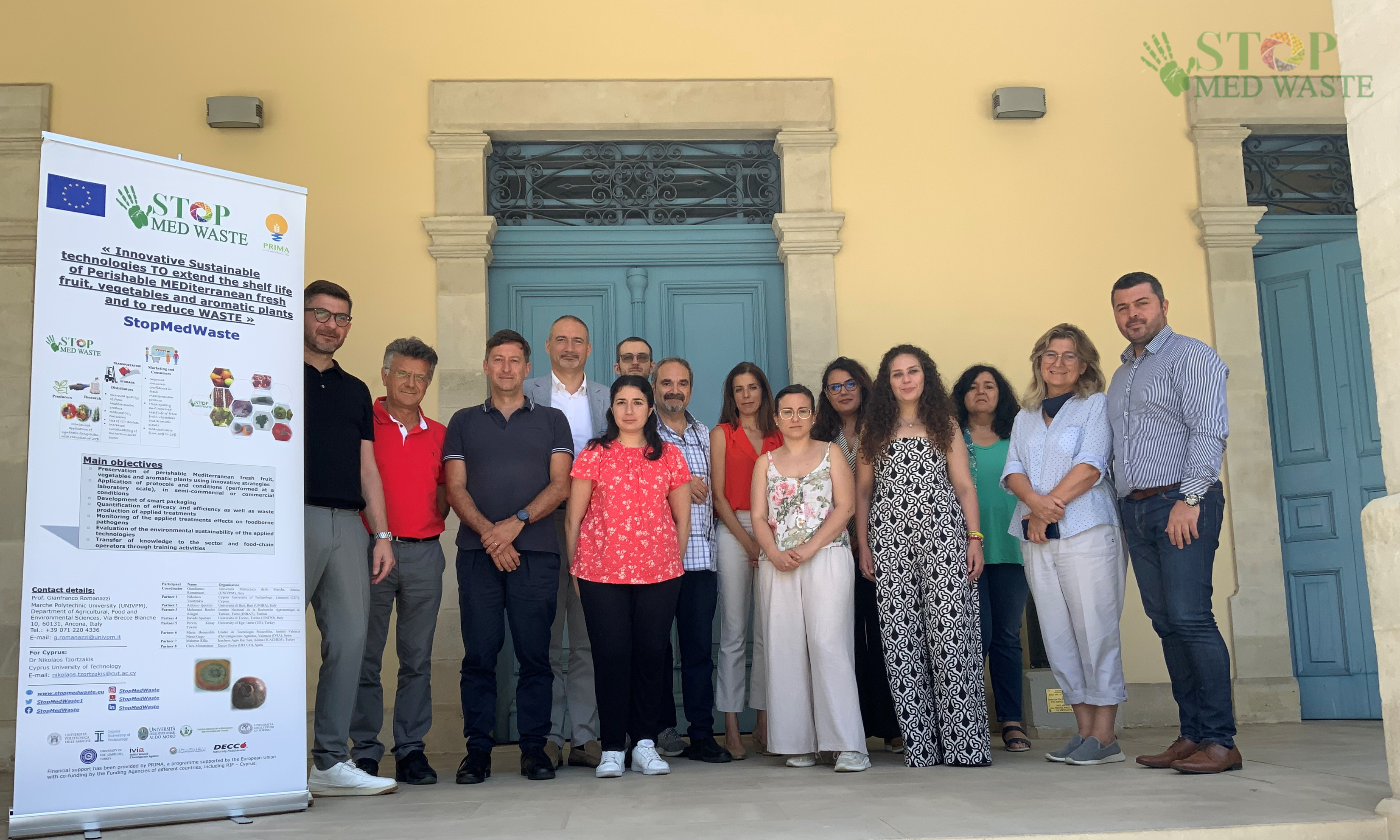
The life-cycle assessment
of these technologies will be monitored to define their sustainability. Training activities for operators will be organised and dissemination will be performed to share gained experiences and best practices among players and stakeholders through the whole supply chain, including consumers. Project StopMedWaste includes a multi-actor approach, with skills from researchers to companies involved in processing, storage and transportation, to move from production to consumer, following the properties of the produce under simulated and commercial retailer conditions.
THE PRESERVATION OF PERISHABLE
Mediterranean fresh fruit, vegetables and aromatic plants using innovative strategies such as the application of physical means (gaseous ozone, ozonated water, electrolysed water), natural compounds (chitosan, essential oils, antifungal edible coatings) and biocontrol agents.
THE APPLICATION OF PROTOCOLS AND CONDITIONS
In semi-commercial or commercial conditions (in packing houses), with monitoring of the quality of the fresh produce during transportation by information and communication technology (ict) devices with remote contro.
THE DEVELOPMENT OF SMART PACKAGIN
For monitoring fruit quality during transportation
THE QUANTIFICATION OF EFFICACY AND EFFICIENCY
As well as waste production of applied treatments on shelf-life of perishable fresh fruit (e.g., table grapes, citrus fruit, stone fruit, strawberries, raspberries, pomegranates), vegetables (e.g., tomatoes, cucumbers) and aromatic plants,
THE MONITORING
Of the applied treatments effects on foodborne pathogens
THE EVALUATION
Of the environmental sustainability of the applied technologies (by means of life-cycle assessment), and the transfer of knowledge (gained from laboratories and packing houses) to the sector and food-chain operators through training activities.
Our Partners

Marche Polytechnic University (UNIVPM), Italy
View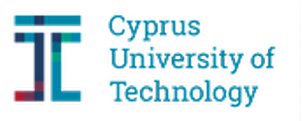
Cyprus University of Technology (CUT), Cyprus
View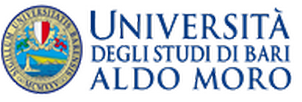
University of Bari (UNIBA), Italy
View
Institut National de la Recherche Agronomique de Tunisie (INRAT), Tunisia
View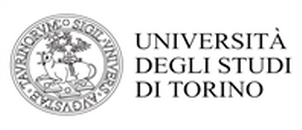
University of Turin (UNITO), Italy
View
University of Ege (UE), Turkey
View
Valencian Institute of Agrarian Research (IVIA), Spain
View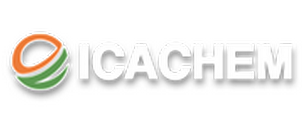
Icachem Agro Ilac San (ICACHEM), Turkey
View
Decco Iberia (DECCO), Spain
ViewOur Gallery
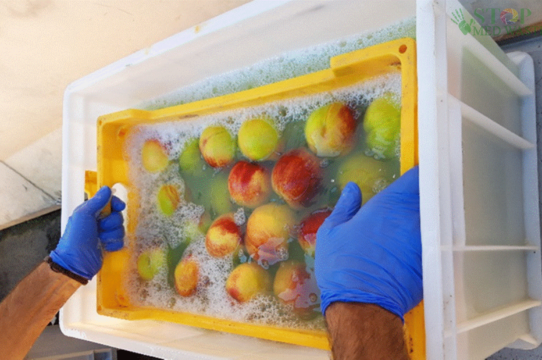
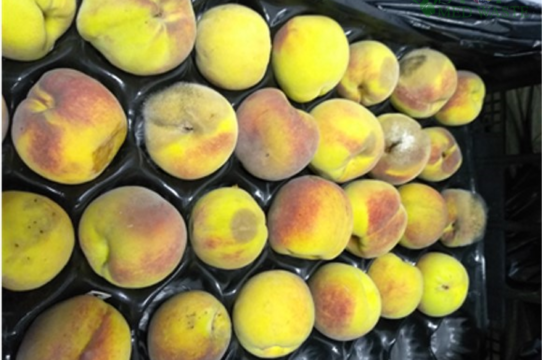
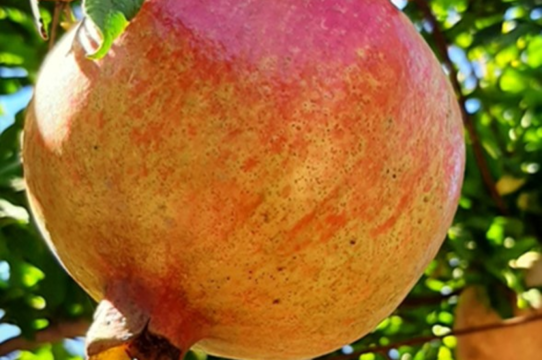
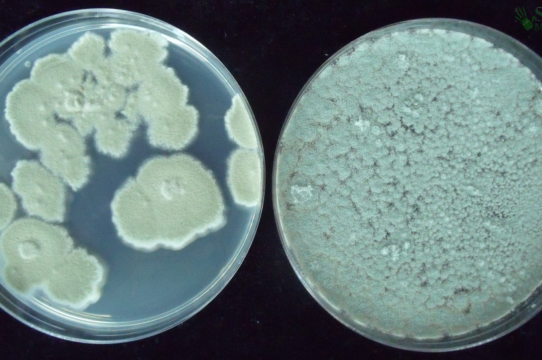
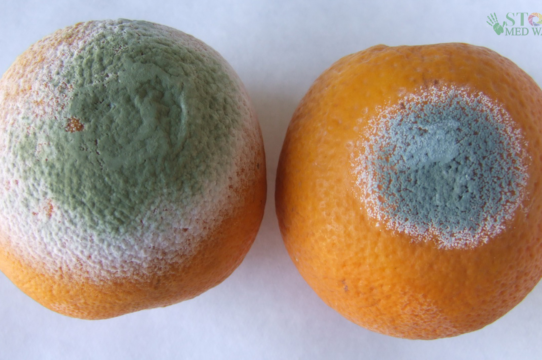
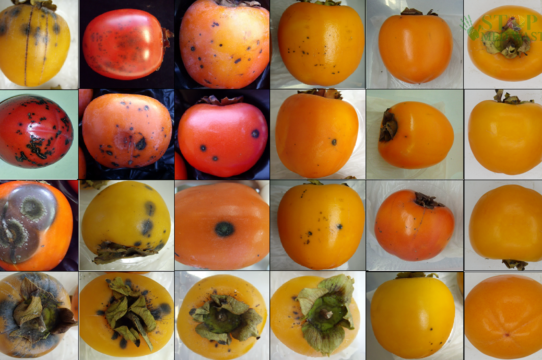
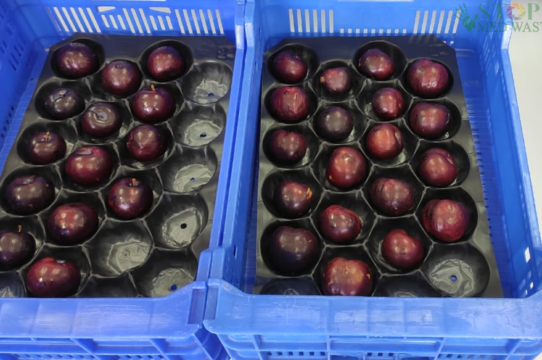
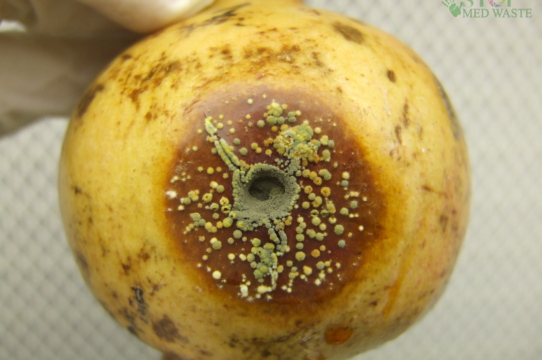
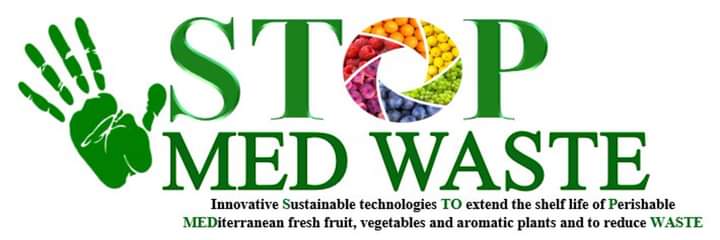
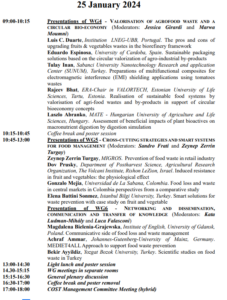
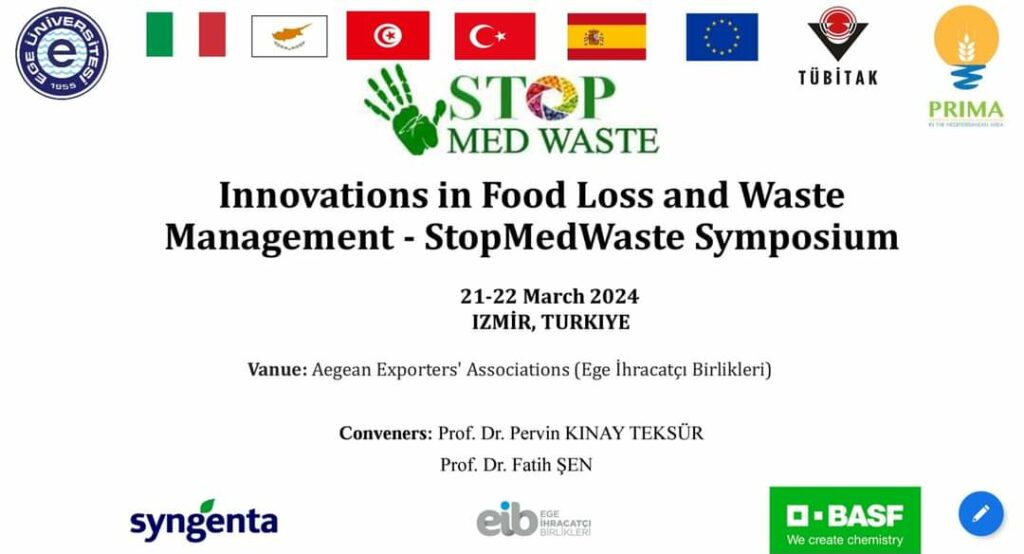


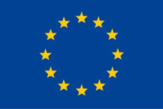
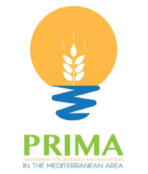
Social Media
TWITTER
YOUTUBE
LINKEDIN
INSTAGRAM
FACEBOOK